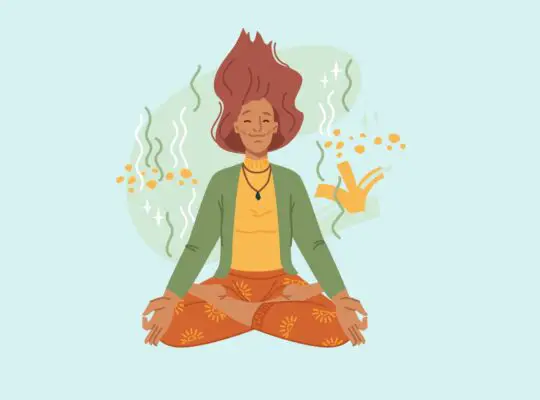In this article: Happiness By Design – Living a joyous life is within your control ‘REACH FOR IT’!
What Is Happiness Really?
Happiness may seem like an abstract concept. Science has studied it using the same methods it would use on any scientific concept- with experiments, of course.
There have been four serious methods of studying happiness:
- Experimental Studies – when pinpointing is allowed between outside sources and happiness of casual relationships.
- Experience & Observation Sampling – this captures people in snapshots of their daily lives. For instance, how happy are you at work, or making dinner, or doing dishes, etc.
- Longitudinal Studies – when lives are studied over a long period of time to study the course of a happy life.
- Correlation Studies – studies that rely on surveys, where people are asked a series of questions about how they feel at any given moment.
That’s great and all, but how can we truly measure happiness?
Self-reporting, of course! All of these studies ask participants how satisfied they are with life. There is no blood test, MRI or other scientific tool that can determine your level of happiness. The studies simply ask their participants whether they’re happy in particular moments.
While it may sound thin, it’s the best method we have, because the only person who knows if you feel happy or not… is you. We are our own most reliable tool in measuring our own level of happiness.
We spend our lives searching for happiness, but the secret may come down to when and where you focus your attention on the bad, and the good. You can become a happier person by training your attention in a more practical way. Obviously self-reporting for happiness isn’t perfect, because feeling happy can mean several things.
Four Conceptual Areas Of Happiness
Happiness can be broken into four conceptual areas, which clarify the type of happiness being examined.
- Sensations – it feels great to swim in this pool
- Well-being – my life is successful overall
- Emotions – I am appreciative of what I have in my life
- Traits – I am a positive, enthusiastic person
These four things are synonymous with happiness, and in studies this is what allows participants to identify the happiness they experience, or don’t. Overall wellbeing, and life satisfaction, is what researchers rely on in these studies, because this offers a more accurate picture of someone’s happiness.
For example, knowing someone feels gratitude regularly, spends time in the pool regularly, and has a high level of satisfaction. This can assist in determining correlations and causation.
Dr. Edward Diener, a professor of Psychology, created an index to make happiness easier to measure, it’s called subjective well-being, and it offers psychologists a more accurate way to define happiness by combining the frequency of negative and positive emotions and satisfaction with life.
- PANAS, or Positive Affect Negative Affect Schedule – this is a self-reported questionnaire that deals with the emotions you are feeling at that very moment in time. You can take it for yourself at PsyToolKit.Org.
- Satisfaction with Life Scale – this is also a self-reported questionnaire that covers five parts- providing with you a numerical measure of your overall life satisfaction. You can take it for yourself at the University of California, Berkeley.
The combination of both of these makes up your subjective wellbeing. Your happiness level, according to research, is equal to your PANAS score, and your Satisfaction with Life score. It’s natural for happiness to fluctuate, so the score can only measure your feelings at that very point in time.
You can take it regularly to track your average score over weeks, or months. Armed with the knowledge of how happiness is measured by science, you can paint your own psychological picture, and use it to become happier.
What Happiness Is Not
What does research suggest happiness is not?
Maybe the best way science can define happiness is by eliminating what happiness isn’t. If you know, what happiness isn’t then you can narrow down what it is.
Studies over the years have determined that happiness is not:
- Never experiencing negative emotions
- Having every personal need met
- Experiencing pleasure all of the time
- Feeling satisfied with life all of the time
Do you find this surprising? Perhaps your definition of happiness has been skewed, and you’ve been looking for it in the wrong places. True happiness is about purpose, an overall peace of mind, and being focused on the greater good.
It isn’t about feeling good, or wanting more or even feeling satisfied with every aspect of life. Self-indulgence only brings temporary bouts of happiness.
Happiness isn’t feeling great all the time.
If feeling good all the time were the only measurement of happiness, then someone who takes cocaine every day would be considered happy. However, possessing an even-keeled mood is far healthier, psychologically, than a mood which takes you to great heights of happiness. What goes up… must come down.
When you ask someone what it is that makes their life worth living, they don’t tend to bring up their mood. They often talk about meaningful aspects of their lives, such as relationships, work, or volunteering. If your focus is on feeling good all the time, then you’ll undermine the ability to feel good.
Happiness isn’t being able to afford to buy anything and everything you want.
While it may be difficult to be happy while living below the poverty line, money doesn’t buy happiness. Imagine you got a large raise unexpectedly. It would absolutely bring you happiness in the short term, but your expectations would shift to fit the new budget.
The happiness you felt at the raise would soon dissipate, and you would be as happy as you were before you received a higher salary. The same can be said for new gadgets, card, and homes, and any other material item that people pine for. The truth is that true happiness comes from within, not from the wallet.
Happiness isn’t a final destination.
It isn’t one event or a single goal, but a dynamic journey that we take through habits that we make. Life events provide us with short-term happiness, and as we adapt to those events are happiness fades.
So, while getting promoted feels amazing at the time, and your wedding is the happiest day of your life- once you get used to these changes, the happiness you felt at the time goes away.
So, what is happiness?
Simply, happiness is a combination of how satisfied you are with your life, and how good you feel on a daily basis. While our moods fluctuate, and life changes, our overall happiness is generally static. With effort, however, we can manage our happiness.
If you want to be a specific weight, you can achieve and maintain that by eating right and being active. Your body will then settle at that weight. However, if you do the opposite, you’ll go back to the weight you didn’t like. The same can be said for happiness.
You control how you feel, and through consistent practice, you can form habits that lead to a more fulfilled joyful and satisfying life.
A particularly important aspect in the happiness equation is the feelings of negativity you may be feeling. Happiness isn’t an absence of those negative feelings. It isn’t about always feeling cheerful and content, or even about always having a smile plastered on your face.
It’s about taking the good with the bad, and learning how to see the good in every bad. We can experience negative feelings in our lives, while still being happy overall.
Learning how to be happy during those negative feelings is what leads to being a happy person.
It is also important to consider that happiness is relative, and very personal, it is up to each one of us to assess, identify, and decide what happiness means for us.
Can You Use More Happiness In Your Life?
Without self-acceptance, you block and limit how much success, happiness, love, and prosperity you enjoy. Self-acceptance is a willingness to accept the happiness that exists within you, allowing you to experience the happiness around you.
- We only have 24 hours in a day, and at some point, in those hours we may feel miserable, or generally happy. There will absolutely be a mix of those emotions. This is life.
- The problem is that too many of us just exist, rather than truly living our lives. We are surviving instead of living.
- We accept a circumstance, rather than changing it. We struggle paycheck to paycheck, living our lives in survival mode.
- We don’t tend to think about our dreams or hopes, let alone our happiness. It shouldn’t take a tragedy for us to realize what we want in life.
We all have different dreams and goals. What we all truly want is enough time to enjoy life and spend time doing things we enjoy, and that are important to us.
Signs That You Lack Happiness In Your Life
There are a few signs, though, that you may not be living a life built for happiness.
- A job you hate – if you spend 40 hours working a job that you hate, it can create anger and stress. Those feelings grow as you realize this is taking away from your family. We often spend too much time at work; however, it is a necessary aspect of our lives. We have to work to pay for the things that we need to live. If your job is making you miserable, it’s likely having an impact on your overall happiness, and the happiness of those close to you. If you’re in this position, you might want to start looking at the employment ads.
- A toxic relationship – love is amazing, but sometimes it can push us the other way. It can be difficult to let go when you’re in love, even if you know its time. Whether it’s a romantic relationship, or a toxic friendship, staying in it will leave you angry, complacent, and fearful of change. A toxic relationship is just a drain on your energy.
- Negativity – if you can’t let go of negativity, you’ll be swamped in nasty habits, negative people and environments and angry pessimistic though processes.
- Fear & Doubt – we all battle beliefs that limit us. Whether it’s because we experienced past failures, or how we were brought up, we sometimes allow ourselves to be paralyzed by fear.
- Difficult Choices – you may have realized there’s part of your life that you want to make a change in, but you put it off for another day. That day, however, never seems to come, and we continue to put off those difficult choices. We never know what tomorrow may bring, so we shouldn’t put things off that may contribute to our happiness- or, unhappiness.
To make a change, you have to consider what you believe.
If you find yourself believing that life is hopeless, and there is no way out of the situation you find yourself in- then you will continue to operate as you are now. However, if you are able to take the negatives, roll with them, and see the happiness- you will experience more happiness.
Nothing that’s worth having will come easily. The journey we take in gaining happiness is more important than the perceived destination. The hard work never stops.
Happiness is worth the journey, and it all begins with a choice.
Are you living a happy life?
28 Key Habits And Mindsets of Truly Happy People
As we discussed above real contentment and happiness isn’t one single thing. It’s a culmination of emotions, personality, genetics, feelings, and other circumstances and variables that life throws at us.
Research has given us a pretty good idea of what happiness can look like. While everyone has their limitations, there are plenty of things that you can do to achieve the maximum level of happiness for you.
There are 28 common factors that the happiest people share.
1| Abundance of Love
One of the most important mindsets and habits of happy people is they love and are loved, be it romantic, familial or friendship love, love surrounds happy people.
2| Self-Love
Happy people love themselves. They are kind and thoughtful to self, engage in regular self-care practices, and care and protect their needs.
- Taking care of your emotional health
- Seeking healthy and supportive relationships
- Being assertive in honor of self
- Loving your own company
- Positive self-narrative
- Embrace your strengths
- Appreciate your weakness
Our daily lives can move at a frightening pace, and in that manic race, it’s easy to forget about looking after yourself. This is a surefire way to end up burnt out, unhappy, and ill.
Treat yourself regularly to ensure you are looking after, not just your long-term health, but also your happiness.
3| Pursuing Passions
Truly happy are passionate and pursue their passions on a regular basis. Happy people engage in activities that make their souls sings, they seek out self-fulfillment and find moments of joy throughout the day. They also realize that happiness is not some future event, but is found in any exact moment of your life, like when walking in the rain, knitting a sweater, running their feet through warm sand, or painting a picture.
4| Just Let Go
It may be difficult to forgive and forget, but it’s a necessity for our happiness. When we hold on to grudges, we allow resentment, hurt, and anger to fester. These negative emotions are an obstacle to our own happiness. Letting go of grudges releases that negativity, and provides you with more space to fill with positive emotions.
5| Act With Kindness
Not only does it make you happier, but kindness is also contagious. When you show kindness to others your brain produces serotonin, feel good hormones that allow you to build strong relationships with the people around you, thus fostering positive feelings.
6| Problems Are Challenges
Happy people do not see problems as obstacles; rather they consider them as an opportunity, or a challenge that rewards them with personal growth and fulfillment.
7| A Gratitude Attitude
Thankful people have a better ability to cope with stress, because they have more positive emotions, thus they are able to reach their goals more effectively. Perhaps the most effective way to harness the power of gratitude is by keeping a journal. Take time out every day to write down what you are grateful for. This will lead to improved optimism, which results in happier moods, and improved physical health.
8| Productive Lives
Happy people lead productive lives. Being productive means…
- Setting and achieving goals
- Doing something important
- Achievement
- Having a purpose
- Being flexible
9| Dream Big
There’s nothing wrong with dreaming big- big dreams mean you’re more likely to accomplish those goals, because you’re driven. Big dreamers are more optimistic, which makes them more positive, thus they are more likely to achieve what they truly desire.
10| Forget The Small Stuff
It’s easy to get angry and rant- but think about what’s upsetting you. It’s probably going to be irrelevant by the same time next week, so why should you sweat it now? Truly happy people know how to let the daily irritations of life roll right off their backs.
11| Speak Well About Others
Indulging in a bit of gossip in the office is tempting, but speaking negatively about other people is essentially like drawing a bath of negative emotions and soaking in them like you would a bubble bath. Resist the temptation of gossip, and speak positively about other people. This will allow you to foster positive thinking throughout your own life.
12| Forget Making Excuses
Our impulse in many situations is to blame someone else for our failure. Blaming others for your mistakes, though, just makes it more difficult for you to rise above them. Truly happy people take responsibility for the mistakes that they make, and see them as an opportunity to improve and change for the better.
13| Live For Today
Whatever you are doing right now- immerse yourself in it. Be present in every moment. Take in all the aspects of each moment, the sights, sounds, smells and emotions you feel.
Don’t get caught up with replaying the negative events of your past in your head, and stop worrying about the future. Enjoy what is happening in your life now. This also means letting go of things beyond your control, not scheduling every moment of the day, and stopping to breathe.
14| Sleep Well
Get up at the same time every single day. It’s easier than you think. Following a sleep schedule regulates your circadian rhythm, thus making it easier for you to wake up every morning, leaving you feeling more energized. The happiest, and most successful, people get up early every day. It enhances focus and productivity.
15| Forget Making Comparisons
Everyone is unique, and so is the life that they live. Don’t get caught up in comparing yourself to other people. Your worth cannot be measured by making comparisons. That goes for thinking yourself as better than your peers, too.
This fosters feelings of judgement, leaves with a superiority complex, and can be detrimental to your happiness. Measure your success on your life, and your progress.
16| Optimism and Positivity
Happy people have a positive mindset. Misery loves company, that saying rings true. You should surround yourself with friends who are happy and optimistic, ensuring that you are surrounded with positive energy.
Positivity includes:
- Focusing on the good instead of the bad
- Fixing instead of complaining
- Accepting instead of complaining
- Say yes, instead of no
- Looking at the bright side
- Having fun
- Laughing at yourself
- Not sulking or being angry over what you don’t have, but being grateful for what you do have
- Seeing the good even in the worst situations
- Laughter and hopefulness
17| You Don’t Need The Approval Of Others
Part of travelling a path to your dreams is drowning out what the naysayers have to say. Seeking the opinions of others is one thing, but it is entirely different to allow the naysayers to stand in your way. Truly happy people follow their hearts, and don’t allow themselves to be too bogged down with external approval.
18| The Power Of Listening
You can take time to listen and soak up wisdom from others, while quieting your mind at the same time. Intense listening brings different perspectives, and can help you feel more content.
19| Nurture Social Relationships
Happy people nurture positive social relationships; they make time for family, spouses, and friends, as they greatly value these connections.
20| Meditate
Meditation is an excellent tool to keep your mind sharp and focused. It is calming and encourages inner peace. Research has shown it results in physical changes to the brain that leads to higher levels of happiness.
21| Healthy Eating
Our diets have a direct impact on our energy levels and moods, for the short term and the long term. Eating a healthy, balanced diet can keep your brain and body focused and happy. While eating unhealthy, processed foods will leave you feeling sluggish, and prone to illness.
22| Healthy Living
Exercise can boost our serotonin, norepinephrine, and dopamine levels- all chemicals, which promote health and wellness. These can relieve symptoms of depression, and reduce the effects of stress. Exercise isn’t just a tool for losing weight, it can also prevent disease, and help you live longer. All of this is a benefit, and daily exercise is an excellent way to reduce stress, enhance your frame of mind, and leave you feeling happier.
23| Minimal Living
Being surrounded by clutter has a way of sucking the life force right out of you. It leaves you feeling in a state of chaos. It’s usually a source of stress that is unrecognized and creating stress and anxiety.
Clutter can create a sense of distraction, guilt, and frustration. Take time to de-clutter your life, at home and in the office. Get rid of everything that isn’t absolutely crucial, and free up not only your physical environment, but your mind, too.
24| Live Honestly
Whenever you tell a lie, you are more likely to experience an increase in your stress levels. Which often results in your self-esteem crumbling. Not to mention that if other people discover that you tell lies, it damages both your professional and personal relationships. Instead, tell the truth. The fact is that happy people are honest, not only about everyday things, but also about their feelings, boundaries, and needs.
You don’t have to stress about people uncovering your lies, or keep track of the various mistruths you have old. It will not only build others trust in you, but boost your mental health.
25| Personal Control
Happy people maintain a strict level of control over their own lives and they make their own choices. Don’t allow others to dictate how you live your life. It’s up to you to establish personal control over your life. This enables you to fulfill your dreams, and your goals, and provides you with a sense of self-worth.
26| Accept Even What You Cannot Change
Not everything that occurs in our life is perfect, and that’s okay. Truly happy people learn to accept the setbacks and injustices they face. They understand that certain things cannot be changed, and a better use of their energy is taking control of what they are able to change.
27| Engage In Meaningful Conversations
While we all enjoy a bit of small talk, shooting the breeze doesn’t lead us to a happier life. People who engage in less chit-chat are happier than those who get caught up in small talk. Additionally, great listening skills helps build stronger relationships, leads to a greater sense of wellbeing, and a better experience all-around.
28| Complain The Right Way
No one likes a whiner, and it’s fair to say that whining is usually considered a negative. It can definitely be annoying when you’re on the receiving end of it. If you complain the right way, though, it can benefit your mental health.
So, how can you complain effectively? When expressing a concern yields results, which leads to an improved mood, as well as building self-esteem, and leaving you feeling empowered. In other words, if you want to complain right- you must identify an issue, and take positive steps to address it, rather than being stuck in a cycle of whining.
Summary
While there may still be plenty left for us to understand about happiness, research has shown us it’s more than just luck. While you may have been dealt a worse hand than someone else, it’s about how you play the hand. In fact, it might be even be exactly how you play the cards, but how you find a way to enjoy playing them, no matter what is thrown at you.
If you’re ever struggling with what it is you’re striving for, simply remember PERMA. It was created by Dr. Martin Seligman, and it stands for 5 elements that are considered key to comprising our overall well-being.
- Positive Emotion – Love, peace, curiosity, gratitude, hope, pleasure, satisfaction, and inspiration all fall into this category.
- Engagement – Losing ourselves in a project or task provides us with disappeared time, because we are totally engaged in it.
- Relationships – People who are engaged in positive and meaningful relationships with friends and loved ones are happier than people who are not.
- Meaning – Having a sense of meaning comes from serving something that is bigger than we are. Whether it is a cause, a charity, or related to our spirituality- something that will have a positive impact on humanity provides us with the meaning we need in our lives.
- Achievement – If we want to feel significant satisfaction with life, we must strive to achieve something that betters us in some way.







